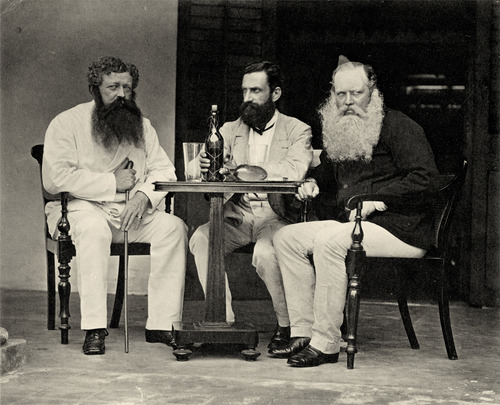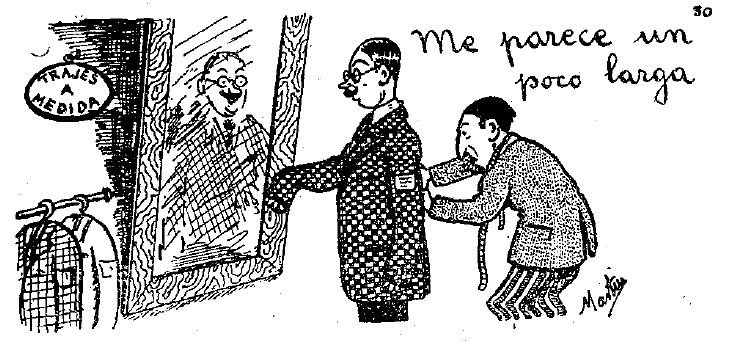
| Языки :: Испанский |
| Аудио |

 |
|
 |
|
87 |
Español |
Spanish |
|
Lección Treinta (30) |
||
|
¿Quién (1) se aburre? |
Who feels dull? | |
| 1 |
Doña Amelia es viuda; desde la muerte de su marido, hace cuatro anos, doña Victoria viva con ella. |
Doña Amelia is a widow; since the death of her husband, [it makes] 3 years (ago), doña Victoria lives with her. |
| 2 | Doña Victoria es casada, sin hijos (2) ; | Doña Victoria is married, without children; |
| 3 |
Su marido es viajante, y viene a casa sólo unos días al mes (3). |
Her husband is a commercial traveller, and only comes home a few days a [at] month. |
| 4 |
Doña Amelia tampoco (4) tiene hijos; es cosa rara en España, donde abundan las familias numerosas. |
Doña Amelia has no children either; it's a rare thing in Spain, where numerous families are many [abound]. |
| 5 |
¿Y no se aburren ustedes, sin nada que hacer todo el santo día? |
And don't you feel dull, without anything to [that] do the whole blessed day? |
| 6 |
Ni pensamos en ello; en casa siempre hay que hacer, con una cosa o la otra, y además... |
We don't even think of [in] that; at home there's always something to do, with one thing or another and moreover... |
| 7 |
Además, interrumpe doña Victoria, hacemos de vez en cuando un viaje, como este. |
Moreover, interrupts doña Victoria, from time to time we go on [make] a journey like this. |
| 8 |
No es lo que yo quería decir, replica doña Amelia. Además ¿ quien puede aburrirse, teniendo la suerte de vivir en Madrid? |
It is not what I wanted to say, replies
doña Amelia. |
| EJERCICIOS | EXERCISE : | |
| 1 | Primer lector. - Esta conversación en el tren me parece un poco larga. |
First reader. - This conversation in the train seems to me a little long. |
| 2 | Segundo lector. - A mí también; ¿qué me importan a mí esas dos mujeres? |
Second reader. - To me too; what do those women matter to me? |
| 3 | Quiero llegar a Madrid lo más pronto posible. | I want to arrive in Madrid the soonest possible. |
| 4 | Vamos a decir al autor que tenemos
prisa, que queremos ver Madrid. |
Let's go and tell the author that we are in a hurry [have h.], that we want to see Madrid. |
| 5 | No quiero oír mas las divagaciones de doña Amelia. | I don't want to hear more divagations of doña Amelia. |
| 6 | Yo tampoco; por suerte, el tren va a recuperar su retraso. |
Neither do I; by luck, the train is going to make up for lost time. |
| NOTES. | |
| 1 |
Who is que, when it is a relative pronoun, and
¿quién? in a question. El hombre que habla : the man who speaks. - ¿Quién habla? Who speaks? |
| 2 |
Casado, casada : married (from casa,
house; hard s's). |
| 3 |
Viajar, to travel; el viaje, the travel, journey;
el viajero, the traveller; el viajante, the commercial traveller. - At home : en casa; with an idea of motion : a casa : Estoy en casa; voy a casa. |
| 4 | I too : jo también; not I, either : yo tampoco. |
|
Notice, in querer, to want, the changing of the e
of the radical, when it is stressed : queremos, we want; quería, I wanted (was wanting); but : quiero : I want. |
|
|
We're drawing near Madrid, dear readers; but we've had to linger on the
way, in order to make for ourselves a vocabulary that should enable us to "manage" there, without too much trouble ! |
